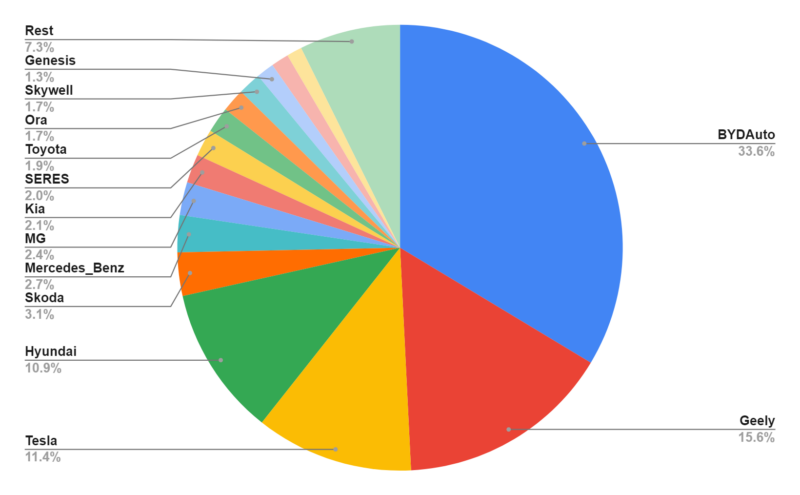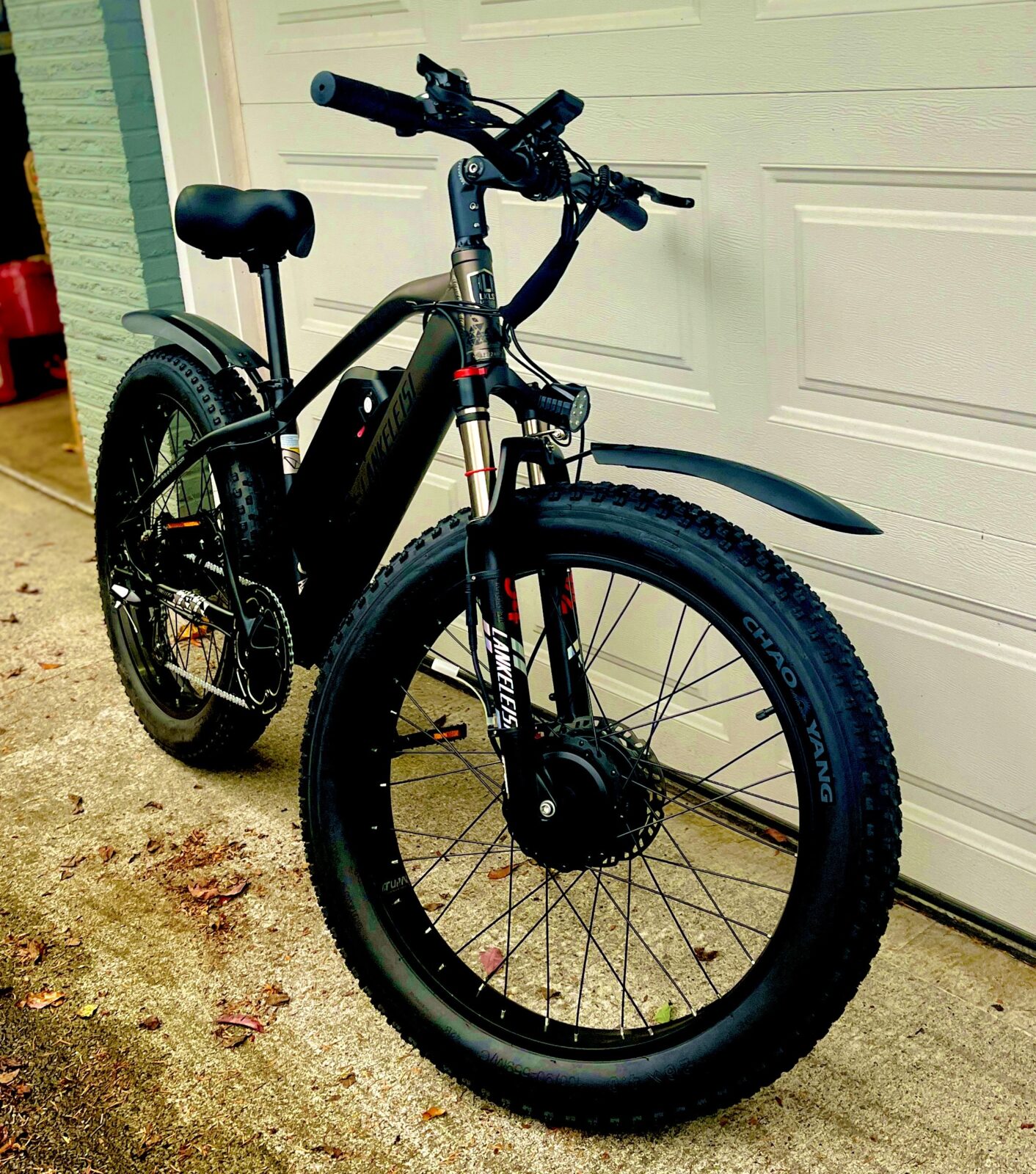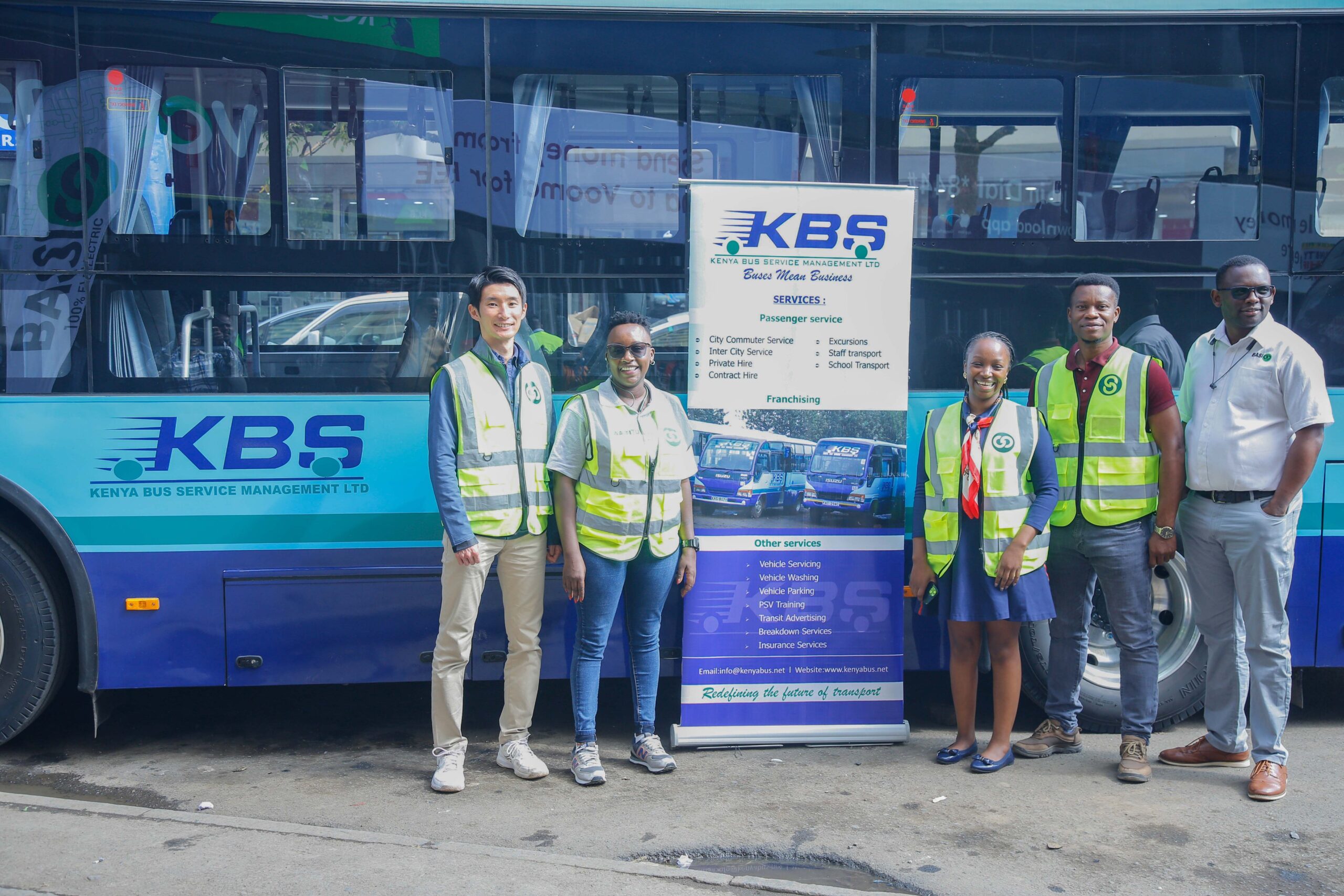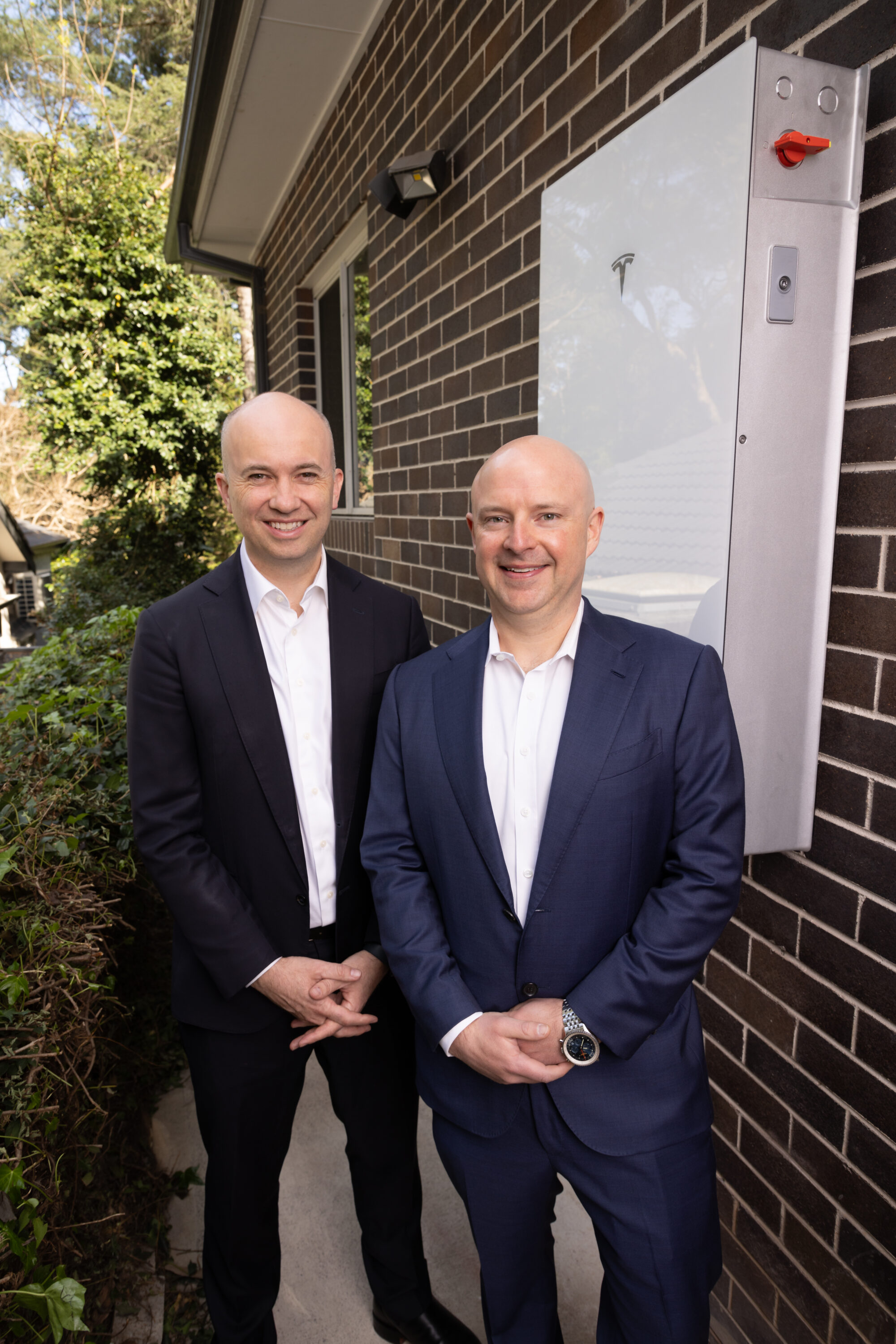
167,217 passenger vehicles were sold in Israel in the overall market from January to June this year. 28,834 were full battery-electrics, meaning that 17.2% of vehicles sold in the first half of the year were fully electric. 25,854 plug-less hybrids were sold in the same period, taking 15.5% of the market share. 9,650 plug-in hybrids were sold in the first half of the year, making up 5.8% of the market share. That means 23% of all the passenger vehicles sold in Israel in the first half of the year had a plug! Pretty impressive. If you live in Israel, please let us know in the comments below how it is now on the streets and if you spot electric vehicles all the time now. It looks like the transition to electric is well underway now in Israel.
In the full electric segment, BYD topped the charts selling 9,698 units in the first 6 months of the year, taking 33.6% of the BEV market share. In fact, BYDs BEVs were 5.8% of the overall market in that period! Geely was in second place with 4,492 units, followed by Tesla with 3,298, then Hyundai with 3,134, and Skoda rounding off the top 5 with 908 units. That means in the first 6 months of the year, Geely had 15.6% of the BEV market (2.7% in the overall market) and Tesla had an 11.4% share of the BEV market and a 2% share of the overall market.
BYD now offers four models in Israel — the Han, the Tang, the Atto 3, and the recently added Dolphin. The Atto 3 had been doing most of the heavy lifting driving sales for BYD in Israel, but now the smaller and cheaper Dolphin has been added to the mix and should help takes sales to the next level. In the medium term, once BYD scales up production, I really hope they also add the new Seagull to the Israeli market.
The Seagull was officially launched in China a couple of months ago at 73,800 yuan ($10,690). Just under $11,000 for a compact hatchback with a 30.8 kWh battery is really impressive. The Seagull is based on BYD’s e-platform 3.0 and falls under the Ocean series, which also includes the Dolphin and the Seal. The Seagull has a single electric motor with 75 hp (55 kW) and 135 Nm of torque. It is front-wheel drive. It also has a top speed of 130 km/h, and acceleration from 0–50 km/h takes 4.9 seconds. The two Blade battery options of 30.08 kWh and 38.88 kWh give ranges of 305 km and 405 km (CLTC) respectively. The Seagull has fast charging, which takes 30 minutes for an 80% charge. This kind of vehicle could really supercharge BEV sales in Israel and around the world.

The plug-in hybrid market was led by Kia with 4,909 units, followed by MG with 1,963 units and then Mercedes-Benz in third place with 587 units sold in the first half of the year. It is interesting to note that although the likes of Kia and MG seem to be doing well with some of their plug-in hybrid models, there is a wider selection of full BEVs in the Israeli market compared to plug-in hybrids. Plug-less hybrids are still quite popular, as seen from the 25,854 units sold in the first 6 months of the year.
I don’t like paywalls. You don’t like paywalls. Who likes paywalls? Here at CleanTechnica, we implemented a limited paywall for a while, but it always felt wrong — and it was always tough to decide what we should put behind there. In theory, your most exclusive and best content goes behind a paywall. But then fewer people read it! We just don’t like paywalls, and so we’ve decided to ditch ours. Unfortunately, the media business is still a tough, cut-throat business with tiny margins. It’s a never-ending Olympic challenge to stay above water or even perhaps — gasp — grow. So …







